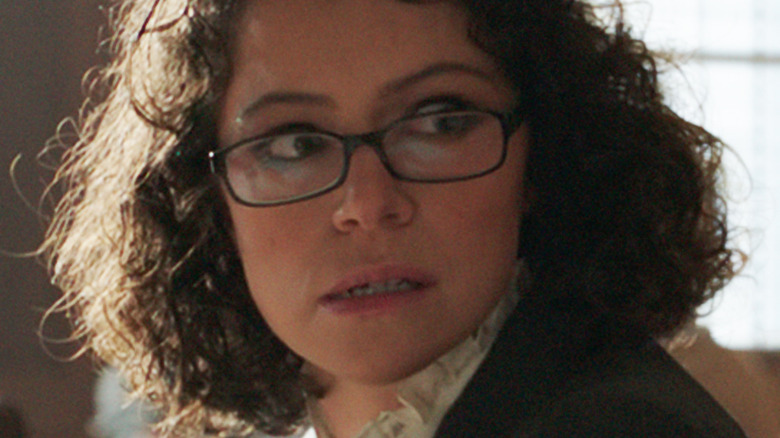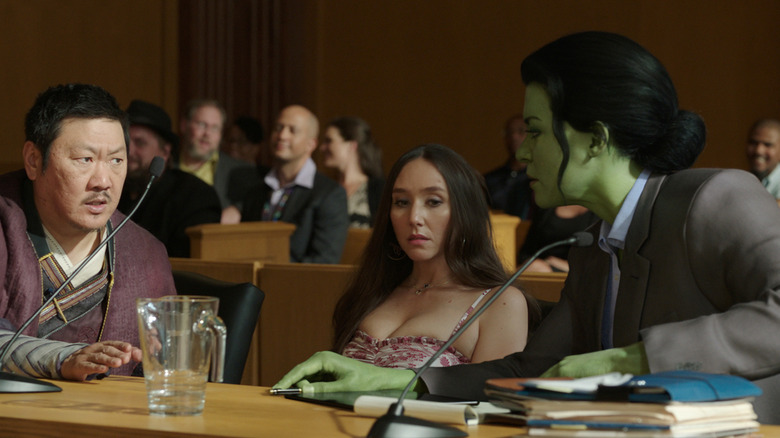How Accurate Are Those Courtroom Scenes In She-Hulk?
Season 1 of original Marvel Cinematic Universe TV series "She-Hulk: Attorney at Law" premiered to Disney+ on August 18, and concluded as of the addition of its ninth and final episode to the streaming service on October 13. While the character She-Hulk has technically appeared on TV before, this new live-action "She-Hulk" series with actor Tatiana Maslany as its titular hero is effectively her first time single-handedly leading a screen adaptation of her comic book adventures.
As those with knowledge of the show are well aware, the MCU's She-Hulk, born Jennifer Walters, is a trained lawyer. She-Hulk even works at a law firm called GLK&H — short for Goodman, Lieber, Kurtzberg & Holliway — meaning that she actively serves as an attorney throughout the series. Showrunner Jessica Gao explained her process for choosing guest stars revolved around She-Hulk's profession, such that its featured characters were selected specifically because they would fit well into the show's episodic legal storylines.
Of course, like any good legal show, these storylines on "She-Hulk" culminate in dramatic courtroom scenes. While many may understandably assume that these scenes aren't all that accurate to real-life legal proceedings given that they take place in a Disney superhero series, the degree to which "She-Hulk" adheres to actual law may, in fact, come as a surprise to some.
The law in She-Hulk is internally consistent, and oftentimes reflects our reality
As a whole, the courtroom scenes throughout "She-Hulk: Attorney at Law" are largely unrealistic given both the superpowered nature of certain participants and some requisite drama that would instantly derail any actual legal proceedings. That said, the team behind "She-Hulk" did actively work to ensure that there is some adherence to real-life law, courtesy of author Charles Soule. As outlined in a Marvel.com profile about his involvement on the show, Soule worked as an attorney before authoring a run of "She-Hulk" comics. The TV series, therefore, employs him as a legal advisor in order to ensure that its courtroom scenes aren't throwing reality entirely out the window.
"For me, having a legal background has allowed me to explore some of the Marvel characters on a lens that people who aren't lawyers maybe wouldn't write it the same way," Soule said.
In an independent scholarly paper published by the University of Illinois Law Review, author Kevin Bennardo analyzes in-depth the degree of realism in Soule's comics. As it turns out, while his characters happen to engage in what we would consider to be legal malpractice, his stories nevertheless follow internally consistent logic, oftentimes reflecting our reality.
Thanks to Soule, then, the courtroom scenes throughout "She-Hulk" are grounded in a realistic framework, prior to their introduction of requisite superhero antics.

